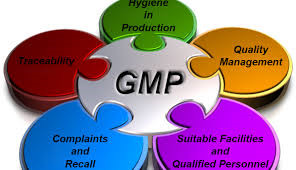Powerful Move Towards Safer Medicines: Pharma Industry Given Government Deadline to Embrace WHO-Standard Good Manufacturing Practices

Powerful Move Towards Safer Medicines: Pharma Industry Given Government Deadline to Embrace WHO-Standard Good Manufacturing Practices
In a momentous step towards ensuring the production of high-quality and safe pharmaceuticals, the government has set a groundbreaking deadline for pharmaceutical companies to adopt WHO-standard Good Manufacturing Practices (GMP). This momentous decision comes as a response to the growing concern over drug quality and safety, with the aim of fortifying the industry’s credibility and ensuring public health protection.
The World Health Organization (WHO) has long advocated for the implementation of GMP as a vital tool for guaranteeing the consistency, safety, and efficacy of pharmaceutical products. These global standards help maintain the integrity of medicines from the manufacturing floor to the patients’ hands, providing a strong assurance of quality control across the entire production process.
With the pharmaceutical industry playing a significant role in healthcare, ensuring that the medicines produced are of the highest quality is paramount. Deviations from GMP can lead to severe consequences, ranging from ineffective treatments to harmful side effects, and even life-threatening scenarios.
The government’s decision to impose a deadline on adopting WHO-standard GMP reflects their commitment to public health and their responsibility to protect consumers from substandard and unsafe drugs. This move is also expected to boost the industry’s competitiveness in the global market, as adherence to international quality standards becomes a critical factor for global trade and collaboration.
Pharmaceutical manufacturers, both large and small, are now facing the challenge of upgrading their manufacturing processes and facilities to comply with the stringent GMP guidelines. For some companies, this may entail substantial investments in equipment, infrastructure, and staff training.
However, the benefits of conforming to WHO-standard GMP are far-reaching and outweigh the initial challenges. Firstly, embracing these practices ensures the consistent production of high-quality medicines, instilling confidence in both healthcare professionals and patients. It fosters a positive reputation for the company, which, in turn, can lead to increased market share and improved business opportunities.

Moreover, adhering to GMP guidelines can streamline manufacturing processes, minimize production errors, and reduce the risk of costly recalls or legal liabilities due to poor-quality drugs. This can ultimately lead to significant cost savings for pharmaceutical companies in the long run.
The government has not left the industry to fend for itself in this crucial transition. To support pharmaceutical companies, the authorities are providing resources, training programs, and expert consultancy to facilitate the adoption of GMP. Additionally, they have set up an inspection and certification mechanism to verify compliance and ensure that the industry adheres to the highest quality standards.
While the majority of pharmaceutical companies are embracing the change and working diligently to meet the government’s deadline, there are some concerns and challenges faced by a small faction of the industry. For some older facilities, it might be more complicated and expensive to upgrade to meet the GMP requirements. Additionally, smaller companies with limited financial resources could find it burdensome to invest in the necessary improvements.
However, the government has stated that it will provide support and flexibility to companies facing genuine difficulties, understanding that a harmonious transition is essential for the long-term health of the industry and the overall healthcare system.
The move towards WHO-standard GMP is not only limited to local manufacturers but also extends to international pharmaceutical companies that export their products to the country. The government’s determination to maintain a unified standard of drug quality is an essential step in creating a safer and more reliable global pharmaceutical supply chain.
As the deadline approaches, the spotlight is on the respective industry, and stakeholders are closely watching the developments. Experts and analysts believe that this monumental shift towards WHO-standard GMP will not only ensure the delivery of safe and effective medicines to patients but will also elevate the country’s pharmaceutical industry to international standards of excellence.
In addition to its impact on the local pharmaceutical landscape, the adoption of WHO-standard GMP is also expected to boost the country’s standing in the global pharmaceutical market. With a reputation for producing high-quality medicines, the nation can become a preferred destination for international pharmaceutical companies seeking reliable partners for collaborations and trade.
As countries worldwide tighten their regulations and demand adherence to international standards, the pharmaceutical industry’s commitment to GMP compliance can open up new avenues for growth and prosperity. As the deadline approaches, the pharmaceutical sector is embarking on a transformative journey towards safer medicines and a brighter future for healthcare.
In conclusion, the government’s decision to set a deadline for companies to adopt WHO-standard GMP is a powerful and commendable move towards safeguarding public health and enhancing the credibility of the industry. As companies gear up to meet this challenge, the focus on quality and safety in the production of pharmaceuticals is expected to yield positive results for patients, the industry, and the nation as a whole.
By embracing these global standards, the pharmaceutical sector can solidify its position as a vital player in healthcare, delivering safe and reliable medicines to people in need across the globe.
The implementation of WHO-standard Good Manufacturing Practices (GMP) marks a significant turning point for the pharmaceutical industry.
As the deadline approaches, there is a palpable sense of urgency and determination among companies to upgrade their manufacturing processes and facilities. Industry leaders are organizing workshops, training sessions, and consultations with experts to ensure a smooth transition to meet the GMP guidelines. The collaboration between the government and the pharmaceutical sector is paving the way for a stronger and more robust healthcare system, with an unwavering focus on patient safety and well-being.





